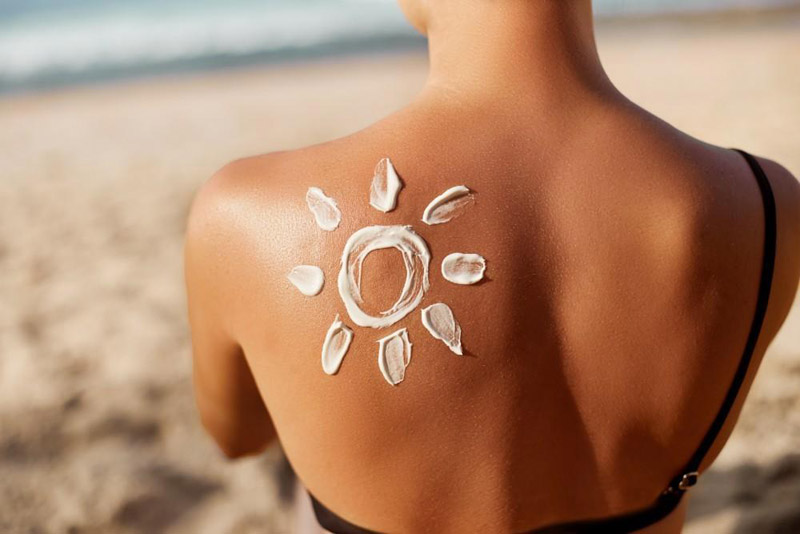Call Us
310-274-4401
Blog
How to Choose and Use Sunscreen for Optimal Protection

No matter the weather or your skin tone, if you live in Southern California, applying sunscreen should be part of your daily routine.
Sunscreen or sunblock (we will explain the difference later) helps prevent sunburn, skin cancer, and premature aging. It is not only essential to slather up every day but also that you choose an effective product and apply it correctly.
Board-Certified Dermatologist Dr. Vicki Rapaport of Rapaport Dermatology in Beverly Hills, CA, breaks down everything you need to know about how to best protect your skin with sunscreen.
Let us begin with understanding how the sun affects your skin.
The ABCs of UVA and UVB Rays
UVA and UVB rays are both types of ultraviolet rays from the sun that travel to the earth’s surface. UVB rays do not penetrate as deeply as UVA rays. Still, they can cause sunburn and play a bigger role in causing skin cancer. UVA rays also contribute to the formation of skin cancer, but because they penetrate the deeper layers of your skin, they are also responsible for premature aging and wrinkling. UVA rays comprise 95% of the UV rays that reach the earth’s surface.
Understanding SPF Ratings
SPF is a number that measures the time it would take you to sunburn if you were not wearing sunscreen versus the time it would take with sunscreen on. These numbers, however, are confusing. For example, an SPF of 30 is only a few percentage points more effective — not double — than a 15 SPF rating. Ratings over SPF ratings over 50 are not meaningful. To keep it simple, choose a product with an SPF of 30 or higher.
Go for a Broad Approach
Always choose a “broad-spectrum” sunscreen, which offers protection from both UVB and UVA rays. Broad-spectrum sunscreens are widely available, but not all sunscreens meet the FDA’s broad-spectrum criteria, so be sure to check for those words on the label.
The Difference Between Sunscreen and Sunblock
The SPF number does not vary between sunscreen and sunblock, but the way each works.
- Sunscreen. Sunscreen is a chemical formula that works by absorbing into the skin and converting the sun’s UV rays into heat, which is then released from the skin. Chemical sunscreen needs to be applied at least 15 minutes before sun exposure for ample time to sink in.
- Sunblock. Also called physical or mineral sunscreen, sunblock is made from the natural-occurring minerals zinc oxide and titanium dioxide. Sunblock sits on the skin’s surface and physically prevents UV rays from penetrating the skin. It provides a physical defense and starts working as soon as you put it on.
Sunscreen and sunblock are equally effective if you apply them correctly.
How and How Much Sunscreen to Use?
Most adults need about 1 ounce — or enough to fill a shot glass — to cover their bodies entirely. Fair-skinned people typically absorb more solar energy than dark-skinned people under the same conditions. Still, nobody should skimp. Rub the sunscreen thoroughly into all exposed skin.
Remember these frequently forgotten spots:
- Neck
- Ears
- Hands
- Tops of your feet
- Along the hairline
- Scalp (if you have thinning hair)
Get help to apply sunscreen to your back. And be sure to protect your lips with a lip balm with an SPF of at least 15.
Why Reapply?
Reapply any sunscreen every two hours, regardless of its SPF rating.
“Water-resistant” means the sunscreen is formulated to perform well despite water or sweat. But no sunscreen lasts indefinitely when you are swimming or sweating. The FDA bans the use of “waterproof” or “sweatproof” on product labels.
They have a specific test, though, and you should find one of two ratings:
- Water-resistant for 40 minutes
- Water-resistant for 80 minutes.
Remember too that toweling off your skin removes sunscreen. So always reapply sunscreen immediately after using a towel.
Do Sun Protection Products Expire?
Most sunscreens have a three-year shelf life. The FDA requires those that expire sooner to print an expiration date on the label. If you cannot find any dates, look at the sunscreen itself. If it is watery, smells foul, is a different color, or is chunky, it is likely expired.
Pro tip: Write the date you bought it on the bottle or tube.
Additional Precautions
- Avoid the sun during peak hours. Typically, this is between 10 a.m. and 2 p.m.
- Cover-up. Wear protective clothing, including: pants, shirts with long sleeves, and sunglasses. Top it off with a wide-brimmed hat, or take refuge under an umbrella.
- Be aware of sun-sensitizing medications. Some prescription and nonprescription drugs can make your skin more sensitive to sunlight. These include antibiotics, nonsteroidal anti-inflammatory drugs such as ibuprofen, and cholesterol-lowering medications. Check with your pharmacist or health care provider about your drug’s side effects.
For more information about protecting your skin this summer, an annual skin check, and for all of your skincare needs, book an appointment call Rapaport Dermatology today.
